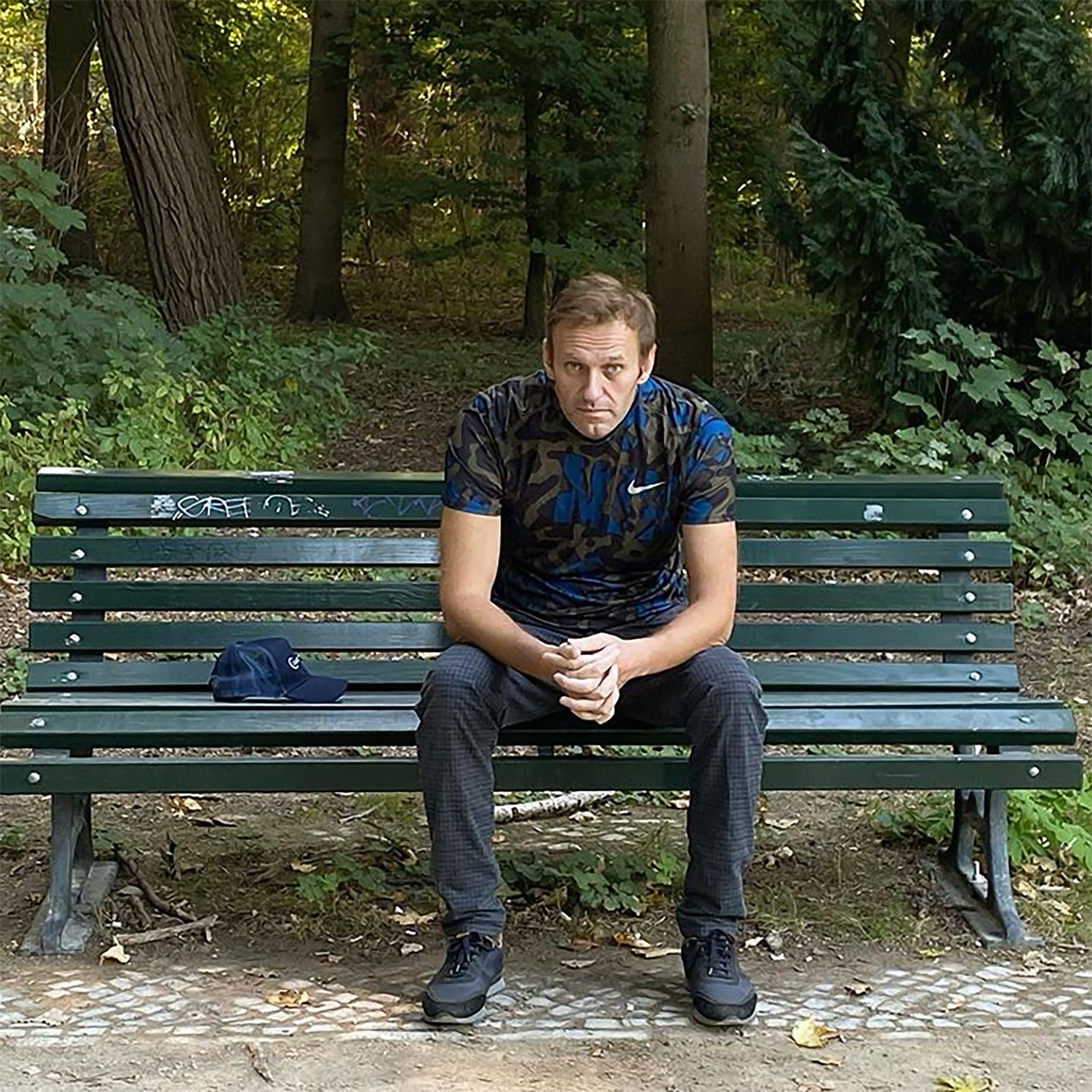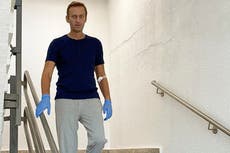Alexei Navalny released from hospital as doctors predict 'full recovery’ from poisoning
Kremlin critic has spent more than 30 days in hospital

Alexei Navalny, Russia’s most prominent opposition politician, has been released from hospital following 32 days of treatment for severe poisoning by nerve agent.
The unexpectedly quick discharge, coming just a week after leaving intensive care, was accompanied by predictions the 44-year-old could eventually make a full recovery.
“The patient’s state of health has improved to such an extent that acute medical treatment could be ended,” a Wednesday morning statement by the Charite clinic in Berlin read. “Any long-term consequences of the severe poisoning can only be assessed later.”
In an Instagram post, Mr Navalny thanked his German doctors and described his immediate plans to walk, spend time with his family, and play computer games.
“I asked them what to do to get back to where I was not only physically but mentally too,” he wrote. “I liked their response: read more, write social media posts, and play computer games. I need to find out if they can prescribe me a PlayStation.”
Mr Navalny, an outspoken Kremlin critic, fell into a coma shortly after take-off on a flight from Tomsk, Siberia to Moscow early on 20 August.
The quick actions of the pilot, who performed an emergency landing in nearby Omsk, and attending paramedics, who administered an antidote, seem to have averted much worse consequences. Mr Navalny was eventually evacuated to Berlin following a protracted battle with Russian authorities, and the intervention of foreign leaders.
In Germany, doctors came to the conclusion the opposition leader had been poisoned by a nerve agent first developed by the Soviet military complex. According to German authorities, the substance in question was a similar, though not identical Novichok agent used in the poisoning of double agent Sergei Skripal and his daughter in Salisbury in 2018.
The Kremlin has denied any role in the poisoning of its most obvious rival. It claims doctors found no evidence of poisoning while Mr Navalny was being treated in Russia. But their position appears undermined by dubious medical reports and the decision of first responders to administer an antidote.
On Tuesday, Le Monde reported wild claims that Vladimir Putin suggested, during a phone call to French president Emmanuelle Macron on 14 September, that Mr Navalny may have taken the poison himself. Judging by the French president’s speech at the UN General Assembly on Tuesday evening – in which he talked about “red lines” and the need for “swift clarification” from Russia – the argument, if it was made, has fallen on deaf ears.
Mr Navalny filed his own Instagram response to the reported suggestion. Employing trademark sarcasm that once again demonstrated his own recovery was well underway, the Kremlin foe congratulated Mr Putin on a “great theory”.
“I cooked up the Novichok in my kitchen, then quietly swigged it on the plane, and fell into a coma,” he wrote on Instagram. “But the trick failed! Putin outplayed me. You can’t fool Putin!”
Join our commenting forum
Join thought-provoking conversations, follow other Independent readers and see their replies
Comments

Bookmark popover
Removed from bookmarks